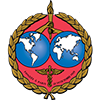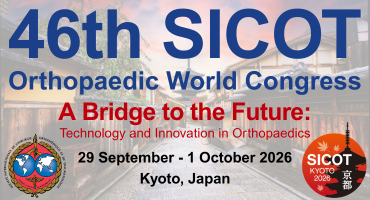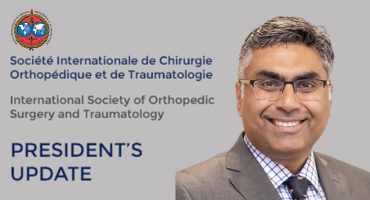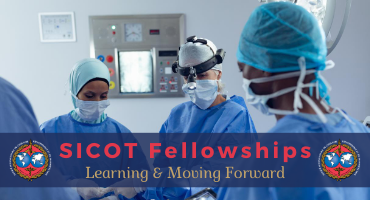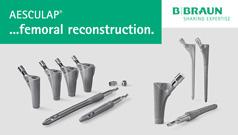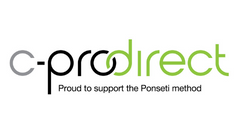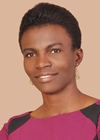 Interview with Patricia Fucs
Interview with Patricia Fucs
Peace Amaraegbulam
SICOT Associate Member - Enugu, Nigeria
In her article, 'Women Surgeons - Still in a male-dominated world', published in the Yale Journal of Biology and Medicine of December 2008, Julie A. Freischlag described three phases in the surgical career of women. In the first phase, she wants to 'do it all, and accomplish much in a short time'. Then, she has to find a symbiosis between work and life achievements. She needs to effectively organise her career, family and other relationships to achieve a balance. And in all these, she has to find meaning to her life.
Women in Surgery may be described as Bright, Sharp, Brave, and Temperate (Elisabeth C. McLemore), and SICOT is blessed to have one such woman, a lady who has achieved meaning and balance in her career and family. She is a model to younger women and we bring an interview with her. Here, she shares her story and encourages women to go for the best.
I caught the enthusiasm zooming from our icon, Patricia Fucs. I hope you do, too, as you read through.
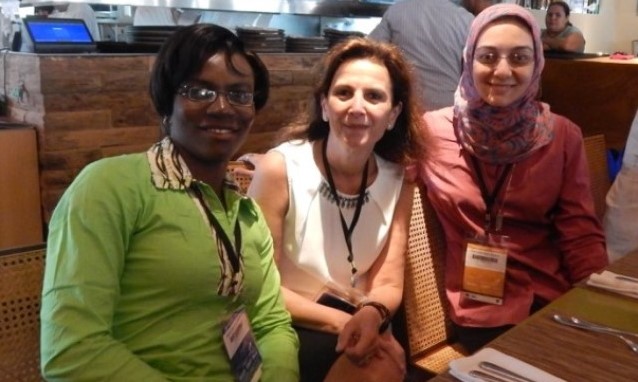
Peace Amaraegbulam, Patricia Fucs, and Nariman Abol-Oyoun
What informed your choice of orthopaedic surgery as a career?
My choice was very simple: I fell in love with Orthopaedics in the 3rd year of Medical School. Love at first sight really. I used to come to the Orthopaedics Department with a nurse who was my teacher during the first year. She belonged to the children's floor, so I came with her to learn bandages and blood collection for preoperative preparation in the children.
What was/were the reaction(s) of the people around you to your choice?
My chief at that time didn't believe it in the beginning but when I came back in the last year (we could choose to stay for 10 weeks in the department where you would apply for residency), he saw that I wouldn't change my mind.
My colleagues from the Medical School were nice and supportive; the residents, too. My husband and my family didn't interfere in my choice. So, I just followed my heart and I got lucky to pass the residency exam and got into the department. After passing the board exam for the Brazilian Orthopaedic Society and the fellowship in Paediatric Orthopaedics and Spine, I joined the staff.
What obstacles did you face during your rise in the profession?
Obstacles are usually present in every field. As women we need to work harder and be focused. Maybe it is harder because we have more 'jobs' to do at home, with the family, and so on.
Was there any overt antagonism from your male colleagues during the training and beyond?
At the beginning, maybe. But looking back now, I don't see it anymore.
You currently represent many international associations. Are there any particular challenges in those, which are due to your gender?
Maybe a little. Orthopaedics is still a male field... It takes time to earn respect, especially in different cultures but this is the international side of international societies.
I was the President of the Brazilian Paediatric Orthopaedic Society (SBOP) and the Latin American Paediatric Orthopaedic Society (SLAOTI), Secretary General of the Brazilian Orthopaedic Society (SBOT) and still contribute to SBOT. At SICOT, I was the National Delegate of Brazil, then Treasurer and Chairman of the Paediatric Committee. I enjoy working for my subspecialty society, IFPOS (International Federation of Paediatric Orthopaedic Societies). There is so much to do. Maybe because I am a woman it was easier in some aspects: easier to meet colleagues and make good friends, gather different groups in one society and help to make it work in different cultures and countries.
How do you combine the hectic schedule of the profession with your duties as a home maker?
My generation got the hard part in the way to manage all the roles as a female surgeon. A lack of a role model to follow and having to find time for all: family and home. I believe we are always learning. We run for the most important thing at each time. It is a part of our growing process, learning how to do it, and I believe we can do it and do it well.
What is your advice to the younger females who are interested in joining, or have already joined, the profession?
To be strong in your will to make it work. Study hard to be the best you can.
Be a good doctor not only an orthopaedic surgeon.
Be gentle with the patients and families.
Be a good partner with your colleagues.
And in your heart you will find that you belong to Orthopaedics because Orthopaedics doesn't belong to you.
